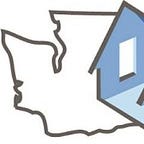What is Wrong with Our Rental Market?
Tamara Simon | Rental Property Guru
The Seattle region continues to be the darling of the real estate investment community. Forbes magazine calls us the hottest Real estate market in the country! (September 2017). “We’re #1” reads headline, after headline with our soaring property prices and soaring rents. The numbers are impressive or frightening depending on your perspective and income. Since 2012 when prices bottomed out the average home purchase price has increased 79%. The average rent in king and Snohomish County has risen by 63% since 2010.
With all this good news for our region it was strange to keep hearing the same question from many of my clients and fellow landlords. Starting this summer the number one concern was “why am I not getting my vacant unit leased?” As the problem has continued throughout the year, I began to explore reasons for this disconnect between our red hot real estate market and filling vacant units.
Supply + Demand
We have seen the biggest building boom in our entire history. More units have come online in the past 4 years than in the last 40 years. 12,000 new units in 2017 and another 12,000 to hit the market in 2018.It is important to note that most of this new inventory is new construction luxury units. Built for high income earners (read tech workers). More supply in the market does affect demand, however, that is not the whole story.
Affordability Factor
The median income in the Seattle area is $80,000 and for those in the tech industry it is $125,000. A closer look tells us that half of Seattle wage earners make less than $50,000 with half of this group earning less than $25,000. This is the heart of why it was more challenging to fill vacant units and in some cases rents had to be reduced to lease the unit. Many of our prospective tenants do not have the income to keep pace with our escalating housing market. The makeup of the household has changed to deal with this problem. Instead of two people to lease the property, 4 or more single adults combined incomes to meet their housing needs.
High income earners can afford to purchase housing or pay the rental rate that the new construction units command. The City of Seattle appears to be focused on housing for the homeless in our area. The working and middle class wage earners are caught in the middle of this problem. This makes it a problem for landlords also. Cash flow is not a vague concept. Empty units equal less cash flow. Yes, it is great to build equity, however landlords still need to pay their mortgage payments and other expenses.
Expenses
Property taxes have gone up 35% in the last four years. The Seattle City Council (along with councils in King, Pierce & Snohomish County) just think landlords can pass these additional expenses on to their tenants. It appears the wisdom of those in government service does not match the reality of what is really happening in the rental market. Again, building equity is wonderful, but when your expenses exceed your rental income, you face foreclosure. In a strong market like the one we have now, you are more likely to sell the property to someone with deeper pockets than you. That new landlord can also afford to remodel to offer an upscale unit to the high wage earner. This does not solve the problem for tenants searching for affordable housing and the landlords trying to offer housing to middle income earners.
Company Town
The Seattle Times called Seattle “America’s Biggest Company Town”. Amazon is now our largest employer and holds 19% of all the city’s class A office space. The huge boom in our housing market is due to the fact that our region has grown by 100,000 people over the past 17 years. Amazon created the jobs and the people moved here. Builders are creating housing to meet the housing needs of high-tech, high income workers. The challenge for most landlords right now is how to meet the housing needs of the rest of our population. Rising property taxes along with new government laws creating more risk for landlords is not helping the situation.
When you have a vacancy, research the market and offer the best product you can. A professionally cleaned unit at the correct price will get leased. You may have to adjust your rent to compete with the new inventory on the market and the reality of the affordability factor in this market. Investing in real estate is all about risk and reward. As landlords, we face more risk at this time in the Puget Sound market. We also are blessed with more rewards (equity building) than any other market in the United States.
Tamara Simon is the founder and Designated Real Estate Broker at Rental Property Guru, as well as the former owner of Koss Property Management. Tamara has helped thousands of Real Estate Investors succeed as landlords by providing coaching and educational services. With over 25 years of experience as a private landlord, professional property manager and educator, Tamara offers a common sense approach on how to analyze real estate investment markets, and deal with the risk and rewards of being a landlord. You can reach Tamara at tamarasimon@comcast.net or (206) 850–3630.
